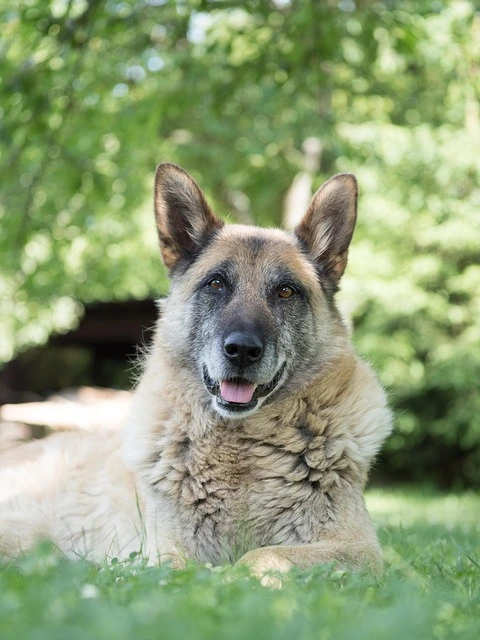Searching for the best dog food for senior dogs can be overwhelming with so many options available. As your beloved companion enters their golden years, providing the right nutrition becomes even more crucial for maintaining their health and quality of life. This comprehensive guide will help you identify the best dog food for senior dogs based on the latest nutritional research, expert veterinary recommendations, and real-world performance.

Table of Contents
The Unique Nutritional Needs of Your Senior Dog
As our beloved canine companions enter their golden years, their nutritional requirements undergo significant changes. The best dog food for senior dogs must address these changing needs to maintain your aging dog’s quality of life and extend their healthy years. Many commercial senior dog foods vary widely in their nutrient profiles, making it essential to understand what makes the best dog food for senior dogs stand out from regular adult formulations.
When Is a Dog Considered “Senior”?
The transition to senior status varies by breed size:
- Small breeds (under 20 lbs): Generally considered seniors around 7-10 years
- Medium breeds (20-50 lbs): Usually enter senior stage at 7-8 years
- Large breeds (50-90 lbs): Often considered seniors by 6-7 years
- Giant breeds (over 90 lbs): May reach senior status as early as 5-6 years
Remember, these are general guidelines. Your individual dog’s activity level, health status, and genetics play significant roles in determining when they truly enter their senior years.
Why Senior Dogs Need Special Nutrition
Metabolism and Weight Management
Senior dogs typically experience a slower metabolism, making them prone to weight gain if their diet isn’t adjusted accordingly. However, some senior dogs actually struggle with maintaining weight, creating a complex nutritional challenge.
According to veterinary nutritionists at Cornell University College of Veterinary Medicine, “If the dog is losing lean body mass then a diet higher in protein may be necessary. Protein is necessary to build and maintain muscles, and as dogs age, they often stop synthesizing as much protein on their own — increasing the need for it in their diet.”
Joint Health and Mobility
Arthritis and joint problems become increasingly common as dogs age. Approximately 50% of dogs over age 10 have some form of arthritis. This makes ingredients like glucosamine, chondroitin, and omega-3 fatty acids particularly valuable in senior dog foods.
Digestive and Immune System Support
Aging can impact gut health and immune function. Many quality senior foods now include prebiotics, probiotics, and easily digestible ingredients to support these systems as they become less efficient with age.
Dental Considerations
Senior dogs often experience dental issues that make chewing dry kibble difficult. This is why many senior formulas come in smaller kibble sizes or softer textures.
Key Components of Quality Senior Dog Food
When evaluating the best dog food for senior dogs, look for these critical factors:
1. Protein Content and Quality
Contrary to outdated beliefs, most senior dogs actually need more protein, not less. High-quality protein sources should be listed among the first ingredients, ideally from named animal sources like chicken, beef, turkey, or fish.
A study published in the Journal of Animal Science found that senior dogs maintained muscle mass better when fed diets containing at least 25% protein on a dry matter basis.
2. Balanced Fat Content
While excessive fat can contribute to obesity, some fat is essential for energy and nutrient absorption. Look for moderate fat levels (typically 10-15%) from quality sources, with particular attention to omega-3 fatty acids for anti-inflammatory benefits.
3. Digestibility and Fiber Content
Many senior foods contain added fiber to support digestive health and regularity. This becomes increasingly important as digestive efficiency decreases with age.
4. Joint-Supporting Nutrients
The best senior dog foods often include:
- Glucosamine (helps maintain healthy cartilage)
- Chondroitin (supports joint flexibility)
- MSM (may reduce inflammation)
- EPA/DHA (omega-3 fatty acids with anti-inflammatory properties)
5. Antioxidants for Immune Support
Ingredients rich in antioxidants help combat age-related cellular damage and support immune function. Look for foods containing fruits, vegetables, and supplements like vitamin E.
Top 10 Best Dog Foods for Senior Dogs in 2025
After extensive research and consultation with veterinary experts, we’ve identified the following as the best dog food for senior dogs currently available:
1. The Farmer’s Dog Fresh Turkey Recipe
Key Benefits:
- Human-grade ingredients
- Customized to your dog’s specific needs
- Superior digestibility for sensitive senior stomachs
- Higher protein content (33%) to maintain muscle mass
- Extensively tested through live feeding trials
Check current price and special offers at The Farmer’s Dog
2. Ollie Fresh Dog Food Chicken & Carrots
Key Benefits:
- Minimally processed, human-grade ingredients
- Veterinarian-formulated recipes
- Delivered fresh to your door
- Excellent for seniors with dental issues
- Rich in joint-supporting nutrients
Try Ollie with 60% off your first order
3. Wellness CORE Grain-Free Senior
Key Benefits:
- Above-average protein (36%) for maintaining muscle mass
- Below-average fat (13%) for weight management
- Contains glucosamine and chondroitin for joint health
- Includes salmon oil rich in omega-3 fatty acids
- Affordable premium option for senior dogs
View Wellness CORE Senior on Chewy
4. Open Farm Senior Turkey & Chicken Recipe
Key Benefits:
- Humanely raised protein sources
- Contains glucosamine and chondroitin
- High protein (34%) and moderate fat (14%) balance
- Supports joint health and mobility
- Gentle on digestive systems
5. Blue Buffalo Homestyle Senior Chicken Dinner (Wet Food)
Key Benefits:
- Ideal texture for dogs with dental problems
- Contains glucosamine and chondroitin
- Free from corn, wheat, and soy
- No artificial flavors or preservatives
- Great option for picky senior eaters
Get Blue Buffalo Senior at Chewy
6. Diamond Naturals Senior Formula
Key Benefits:
- Excellent budget-friendly option
- Contains L-carnitine for weight management
- Includes glucosamine and chondroitin
- Made by a safety-conscious company
- Good protein-to-fat ratio for seniors
Find Diamond Naturals Senior Formula
7. Hill’s Science Diet Senior Vitality 7+
Key Benefits:
- Formulated specifically for brain health in older dogs
- Contains balanced minerals for heart and kidney health
- Includes antioxidants for immune system support
- Available in both dry and wet formulations
- Backed by extensive nutritional research
Purchase Hill’s Science Diet Senior Vitality
8. Honest Kitchen Grain-Free Fish Recipe
Key Benefits:
- Human-grade dehydrated formula
- Easily digestible for sensitive senior stomachs
- High in omega-3 fatty acids from fish
- Can be rehydrated for dogs with dental issues
- Minimal processing preserves nutrients
Try Honest Kitchen for your senior dog
9. Canidae Pure Senior Limited Ingredient Diet
Key Benefits:
- Limited ingredient formula for sensitive stomachs
- Contains probiotics for digestive health
- Includes glucosamine and chondroitin
- Free from common allergens
- High protein (31%) for muscle maintenance
10. Chicken Soup for the Soul Senior Wet Food
Key Benefits:
- Super-fine pate texture ideal for dogs with missing teeth
- Free from corn, wheat, and soy
- No artificial colors, flavors, or preservatives
- Good protein-to-fat ratio (34% protein, 18% fat)
- Budget-friendly premium wet option
Find Chicken Soup for the Soul Senior
Choosing Between Wet and Dry Food for Senior Dogs
When selecting the best dog food for senior dogs, you’ll need to decide between wet and dry formulations. Both options have advantages for aging canines. Consider these factors when determining the best dog food for senior dogs in your household:
Benefits of Dry Food for Seniors:
- Dental health: Some kibble can help reduce plaque
- Cost-effective: Generally more economical
- Convenience: Easier to store and serve
- Calorie control: Often easier to measure precise portions
Benefits of Wet Food for Seniors:
- Hydration: Higher moisture content (70-80% vs. 10% in dry)
- Palatability: Often more enticing for picky seniors
- Ease of eating: Softer texture for dogs with dental problems
- Freshness: Once opened, encourages regular feeding
Many dog owners find that a combination approach works best—using wet food as a topper or mixing it with dry kibble to enhance palatability while maintaining some of the benefits of dry food.
Special Dietary Considerations for Senior Dogs
The best dog food for senior dogs often needs to address specific health conditions that become more common with age:
Senior Dogs with Weight Management Needs
If your senior dog struggles with weight gain:
- Choose lower-calorie formulations with moderate fat content
- Look for foods with L-carnitine, which may support fat metabolism
- Consider foods with higher fiber content to promote satiety
- Ensure proper portion control and regular exercise
Senior Dogs with Joint Problems
For dogs showing signs of arthritis or mobility issues:
- Prioritize foods with therapeutic levels of glucosamine and chondroitin
- Look for EPA/DHA omega-3 fatty acids from fish oil (at least 0.5%)
- Consider foods with added MSM or green-lipped mussel
- Maintain healthy weight to reduce stress on joints
Senior Dogs with Dental Issues
If your older dog has missing teeth or dental pain:
- Consider wet food or rehydratable options
- Look for smaller kibble sizes in dry food
- Try adding warm water to soften dry food
- Ensure regular dental check-ups with your veterinarian
Senior Dogs with Kidney Concerns
For dogs with early kidney issues (always consult your vet):
- Look for moderate, high-quality protein sources
- Consider foods with controlled phosphorus levels
- Ensure adequate hydration with wet food or added water
- Follow your veterinarian’s specific recommendations
Transitioning Your Dog to Senior Food
When switching to a senior formula, gradual transition is key to avoid digestive upset:
Days 1-2: 75% current food, 25% new senior food
Days 3-4: 50% current food, 50% new senior food
Days 5-6: 25% current food, 75% new senior food
Day 7+: 100% new senior food
If you notice any digestive upset during transition, slow down the process and consult your veterinarian.
if your senior pup also struggles with sensitivities, see our vet‑backed guide to the best hypoallergenic dog foods.
Monitoring Your Senior Dog’s Response to New Food
After transitioning to a senior formula, watch for these positive signs:
- Maintained or improved energy levels
- Healthy weight (neither gaining nor losing unintentionally)
- Normal stool consistency
- Good appetite
- Shiny coat and healthy skin
- Improved mobility (if joint support is needed)
If you notice adverse changes like decreased appetite, digestive upset, or lethargy that persists beyond the transition period, consult your veterinarian.
Supplements to Consider for Senior Dogs
While a complete and balanced senior dog food should provide most necessary nutrients, some seniors benefit from targeted supplementation:
- Joint supplements: Extra glucosamine/chondroitin for severe arthritis
- Omega-3 fatty acids: Additional fish oil for inflammation
- Probiotics: For digestive and immune support
- Cognitive support: Supplements containing antioxidants or medium-chain triglycerides
Always consult your veterinarian before adding supplements to avoid interactions or redundancy with ingredients already in your dog’s food.
How Often Should You Feed Your Senior Dog?
Many senior dogs benefit from smaller, more frequent meals rather than one large daily feeding. Consider:
- 2-3 smaller meals daily for better digestion
- Consistent timing to maintain stable blood sugar and energy
- Evening meal at least a few hours before bedtime to allow for digestion and bathroom breaks
Frequently Asqued Questions
When exactly should I switch to senior dog food?
There’s no exact age that applies to all dogs. Look for signs like slowing down, weight changes, or joint stiffness. Consult your veterinarian about transitioning to the best dog food for senior dogs if you’re unsure—they can help assess your dog’s individual needs.
Do all senior dogs need special food?
Not necessarily. If your older dog is maintaining a healthy weight and showing no signs of health issues on their adult formula, a switch might not be required. However, many seniors benefit from the targeted nutrition in senior-specific formulas.
Is grain-free better for senior dogs?
Unless your senior dog has a specific grain allergy (which is uncommon), grain-free is not inherently better. Some grains provide valuable nutrients and fiber. Focus more on overall nutritional balance than on whether a food contains grains.
Should I be concerned about protein levels for my senior dog’s kidneys?
For healthy senior dogs, higher protein levels are generally beneficial for maintaining muscle mass. Only dogs with diagnosed kidney disease may need protein restriction, and this should be done under veterinary guidance.
How can I get my picky senior dog to eat?
Try these approaches:
Warm the food slightly to enhance aroma.
Add a small amount of wet food as a topper.
Ensure meal times are quiet and stress-free.
Rule out dental pain or other health issues that might affect appetite.
What’s the difference between “all life stages” and senior-specific foods?
“All life stages” foods must meet the nutritional requirements of growth and reproduction, which can mean higher calories and different nutrient balances than what’s optimal for seniors. Senior-specific formulas are tailored to aging dogs’ needs with appropriate calories and targeted nutrients.
Conclusion: Investing in Your Senior Dog’s Nutrition
Choosing the best dog food for senior dogs is one of the most impactful ways to support their health and comfort in their golden years. The best dog food for senior dogs combines knowledge of general senior nutrition principles with attention to your individual dog’s specific needs and preferences.
While premium senior dog foods may represent a higher initial investment, the potential benefits of feeding your dog the best dog food for senior dogs — including fewer health issues, improved quality of life, and potentially reduced veterinary costs — make them a worthwhile consideration for many pet parents.
Remember that nutrition is just one aspect of senior dog care. Regular veterinary check-ups, appropriate exercise, mental stimulation, and lots of love all contribute to helping your faithful companion enjoy their senior years to the fullest.
The information provided in this article is for educational purposes only and is not intended to replace professional veterinary advice. Always consult your veterinarian about your individual dog’s specific nutritional needs.

